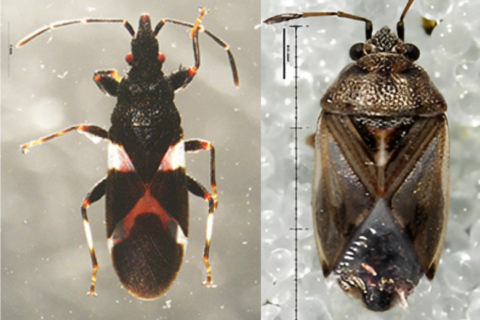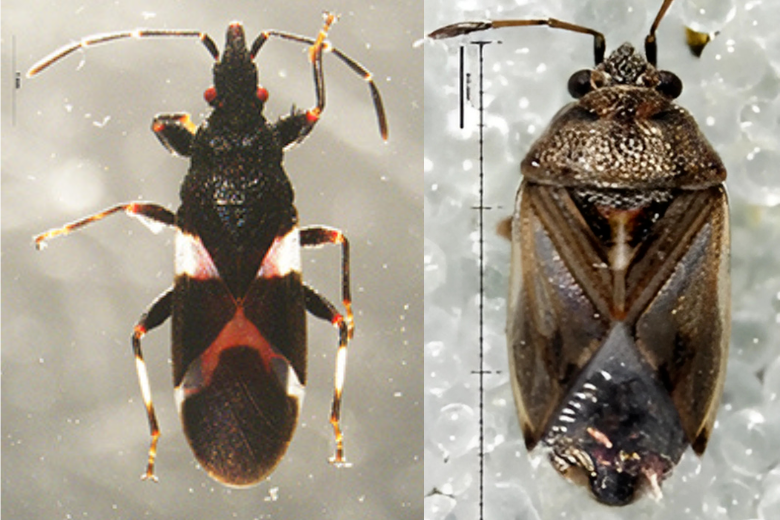
U.S. Customs and Border Protection agents recently caught two dangerous insects at Dulles International Airport.
One of the bugs hasn’t been seen in the D.C. area in 40 years, and the other has never been encountered in this area, according to a statement from the agency
The two pests were found while CBP agriculture officers were inspecting a shipment of 188 protea and chamelaucium cut-stem flowers imported from South Africa on Oct. 7. The flowers were destined for an address in King George, Virginia.
An entomologist with the Department of Agriculture identified the specimens as Caprhiobia sp. (Lygaeidae), and Oxycarenus maculatus (Protea seed bug), both common in Africa.
Caprhiobia sp. (Lygaeidae) is a plant bug known to occur in South Africa that has a voracious appetite and causes extensive damage to vegetation. The USDA entomologist consulting the national pest identifier database confirmed the bug as a first-in-port discovery — there has been no previous reported discovery of Caprhiobia sp. (Lygaeidae) in the D.C. region.
Christopher Brewer, branch chief for agriculture for U.S. CBP, told WTOP the shipment of flowers was destroyed.
Seed bugs are a crop pest and pose a serious threat to crop industries, such as corn, grains, wheat, cotton, fruit, tree nuts and vegetables. The USDA entomologist consulted the national pest identifier database and confirmed this insect pest has not been observed locally since November 1984.
CBP agriculture specialists routinely inspect flower imports to ensure they are free of pests that pose serious threats to U.S. agricultural and environmental resources.
During a typical day last year, CBP agriculture specialists across the nation seized 3,287 prohibited plant, meat, animal byproducts and soil and intercepted 231 insect pests at U.S. ports of entry.
Get breaking news and daily headlines delivered to your email inbox by signing up here.
© 2024 WTOP. All Rights Reserved. This website is not intended for users located within the European Economic Area.


